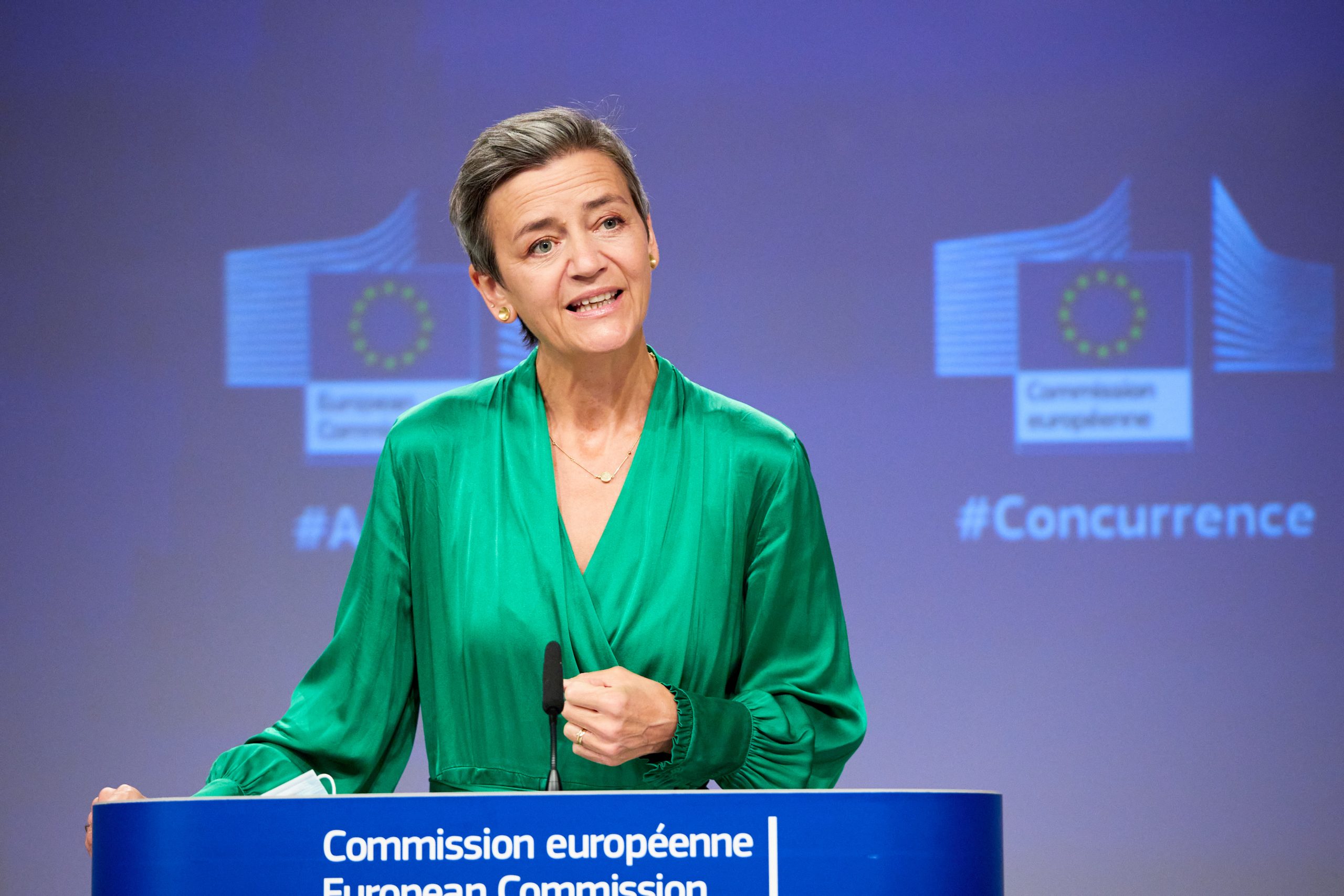Speech by Executive Vice-President Vestager on the Single Market Emergency Instrument
 © European Union, 2021, Source: EC - Audiovisual Service, Margrethe Vestager
© European Union, 2021, Source: EC - Audiovisual Service, Margrethe Vestager“Check against delivery”
Today, we adopt a proposal: the Single Market Emergency Instrument.
For almost thirty years – it has its 30th anniversary the coming January the Single market has been the fundament of our European construction. It is the world’s largest trading bloc. Providing opportunities for millions of businesses around the world. It has made Europe come to life for millions of consumers across our region.
But the Covid 19 crisis showed us our Single Market isn’t perfect. It is strong, but not unbreakable.
Unilateral measures taken by Member States and the lack of transparency damaged the free movement of supplies when we most needed it. This increased shortages of crisis-relevant goods in high demand.
Together with national authorities and businesses, we managed to end this negative spiral. We created green lanes for trucks to pass the borders, as an example.
But the lesson learned remains clear: we need to make our Single Market operational at all times, including in times of crisis. We need to make it stronger.
We need new tools that allow us to react fast and collectively, so that whenever we face a new risk of crisis, we can ensure that:
- our Single Market remains open, fair and continues to provide the most important things for doing business;
- and that goods of vital importance remain available to meet the needs of people in Europe.
The new Single Market Emergency Instrument will give us such tools.
It follows a progressive and balanced approach, depending on how close we find ourselves from a possible new crisis.
First – Outside of crisis, we will work on establishing the necessary protocols to make us better prepared. We will also run crisis management simulations and ask Member States to send early warnings in case the supply of a critical product may be at risk.
Second – Whenever the threat of a new crisis becomes clearer, we will activate a so-called “vigilance phase”. In this phase we will ask Member States to voluntarily share information regarding their supply chains of goods and services of strategic importance. Such information could have helped us anticipate the lack of facemasks during the Covid crisis. In exceptional circumstances – and only in exceptional circumstances – the Commission can ask Member States to build-up its reserve of such strategic goods and services.
Third – An “emergency phase”, which will be activated by the Council when a sudden and unexpected crisis hits our Single market and severely disrupts the free movement or the availability of vital products. In this phase, the Single Market Emergency Instrument’s first objective will be to ensure that Member States only limit the free movement – being of goods, services or people – to what is absolutely necessary to face the crisis. To do so, we will require Member States to notify any restrictions they may take. As such, we will increase coordination and communication between countries, which were lacking during the Covid-19 crisis.
To ensure the availability of vital goods and services, the Commission will also be able to recommend companies to expand or repurpose their production of crisis-relevant products. We saw for instance during Covid how several companies in the fragrance or drinks business repurposed their production to make hydro-alcoholic gel. In exceptional circumstances, the Commission may also request information to companies regarding their production, accelerate the placing of well-needed products on the market or invite companies to prioritise orders for specific goods that will be needed during the crisis. But we would leave a chance to companies to provide a justification in case this is not doable, we will listen well to what they can provide.
Before I pass-on to Thierry, I would like to stress again an important point. Our Single Market Emergency Instrument is making the Single Market work, also in times of crisis. It is designing a collective, collaborative pathway to deal all together with crises that cannot be anticipated, and for which businesses cannot get prepared. For the benefit of us all. That is why we have foreseen precise definitions of what a crisis means, and strict thresholds for the activation of the different phases. So that the vigilance and emergency phases can only be activated when really justified. Likewise, the different tools, including strategic reserves and the priority orders will only concern goods that are of vital importance to the safety of people in Europe.
That’s also why Member States are closely involved in all steps of the process. With an advisory role as members of the advisory group that will be created. And with a decision role in the activation of the different modes and measures.
One of the lessons of the past two years has been that Europe’s resilience relies on a strong Single Market. Resilience is all about the ability to absorb shocks and overcome crises by taking action and doing that together.
